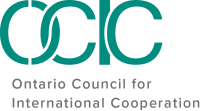Participatory Monitoring and Evaluation Workshop
Event Details
A Six-Day PM& E Workshop That Will Show You How To:
– RETHINK your own monitoring & evaluation strategies and approaches;
– MASTER participatory PM & E tools for the workplace;
– FACILITATE PM&E processes for your project, programme or organization;
– DEVELOP monitoring and evaluation plans in a more participatory manner;
– INTEGRATE qualitative and participatory methods into monitoring and evaluation
Background
Monitoring and Evaluation is a vital management tool. Communities, organizations and funders need to know how effective their efforts have been. But, a key question being asked is “Who should make these judgments, and on what basis?”. Too often, it is outside “experts” who are completing the report card primarily to fulfill an accountability function for the funding organization.
Participatory monitoring and evaluation (PM&E) is a different approach involving a wide range of stakeholders such as local people, community organizations, NGOs, and development agencies deciding together about how to measure results and what actions should follow once this information has been collected and analyzed. PM&E can reveal valuable lessons and improve accountability for all stakeholders, not simply the funding organization. For local stakeholders, PM & E is an opportunity to build their own capacity to reflect and analyze their program’s progress and the action that might be required to take corrective action. These are essential ingredients to helping stakeholders to establish, own and implement their own monitoring and evaluation systems.
Why You Should Attend
It is imperative that we begin to critically examine more conventional approaches to monitoring and evaluation that are too extractive and have limited use and benefit to stakeholders. Too many times, conventional evaluations inadequately involve stakeholders in reflecting, analyzing and acting on their own initiatives. Development initiatives must be more responsive and accountable to local communities, organizations and Government. Involving local stakeholders in a more participatory monitoring and evaluation process is critical to building capacity, learning and action for informing their own decision-making and moving forward in ways that honors growth and constructive change. Development agencies, NGOs and intermediaries can take a leading role to spearhead such efforts and develop monitoring and evaluation systems that are more responsive.
Who Should Attend
This workshop is intended for:
– Project Managers & Officers who are responsible for the monitoring and evaluation of their programs, projects or organizations;
– Directors and Program staff of Monitoring and Evaluation units;
– Community leaders and workers with project responsibilities;
– Decision-makers who are looking at new ways to redesign their own operations to make them more participatory and responsive to local needs;
– Consultants called upon to provide technical expertise in the areas of PM&E;
– Evaluators who want to expand & innovate their evaluation toolbox.
This is a practical, iterative and hands-on workshop. The format will vary between small group work and discussion, plenary, and practical community assignments to encourage the sharing of knowledge and application of participatory concepts and tools to real life situations. Participants will go out into the community on a daily basis to apply tools and to learn by doing.
The community practice assignments will be in one of four different communities in and around Ottawa. Teams of participants will carry out a simulated participatory monitoring and evaluation assignment, defined by the host organization, and using tools learned in the workshop. Where appropriate, links will be made to existing community groups and their issues. Evening meetings and on-going team-building exercises will be part of this process.
Date: July 16-21, 2018
Location: Held at the University of Ottawa






